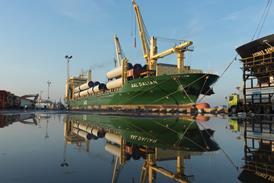November 1 - The International Air Cargo Association (Tiaca) has warned that night-time flight bans at major airports will come at a high economic and environmental price.
The Association's comments follow a decision by the Hesse Administrative High Court in Germany to ban night flights at Frankfurt Airport.
"The imposition of a noise curfew doesn't occur in a vacuum, it must be looked at holistically because banning night flights has wide-ranging consequences," said Tiaca's chairman, Michael Steen.
"It means air services will be eliminated with negative impact not only on the airlines but shippers and all the businesses and consumers linked to the shipments. It also results in flights being re-routed over longer distances or flown at different times which can lead to greater congestion and emissions during daytime hours."
Tiaca says night flights are often the best or only way for cargo flights to perform their vital role as a crucial component of global supply chains, enabling just-in-time business strategies and fostering economic growth. Air cargo operators, it says, tend to utilise night-time hours not simply because those are the slots available but because that timeframe is critically linked to expedited delivery for the cargo once it's on the ground.
Imposing bans, the Association warns, will have a 'domino effect' that penalises businesses and consumers that rely on efficient global supply chains, often more than they realise.
"It is very easy for courts to impose restrictions on airport operations but they fail to take into account the economic importance air cargo operations bring to airports and their local business communities. At airports around the world, all-cargo operations are often forced to fly night-time operations because of slot restrictions that have been steadily increased over the years, particularly as passenger flights are usually given preference ahead of freighter services. The air cargo supply chain has adapted to cope with these changes but now faces a situation where all-cargo operations could be effectively forced away from major airports. This would have a considerably wider effect than the judicial system is likely to take into account."
















